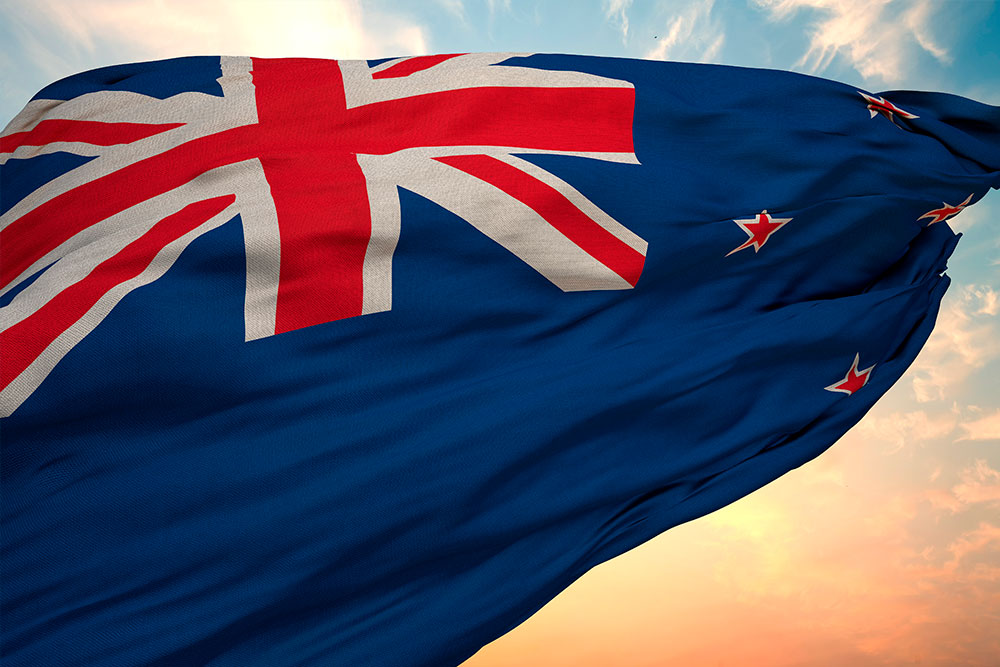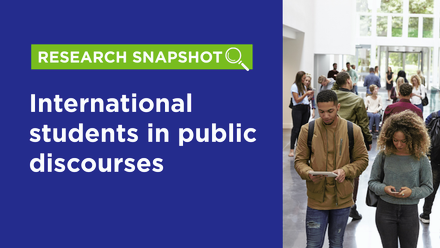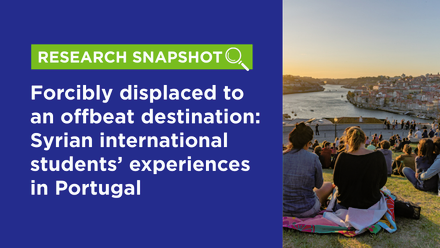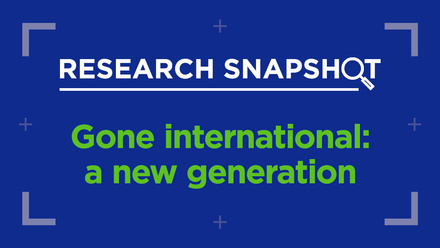How governments can support study abroad

There are a few reasons why Lena Tichy, a Swiss student, chose to do her PhD in Creative Writing at Victoria University of Wellington in New Zealand.
“The first among them was that New Zealand offered international PhD courses at a domestic fee. I looked at other English language destinations like the US and UK, but the course fees alone would have been astronomical. PhD students are also allowed to work full time in New Zealand. I got a job at the university café, which meant I could support myself financially.”
Since 2005, the New Zealand government has offered a special PhD package to international students. International PhD students pay the same fees as New Zealand domestic students, can work full-time while studying and can apply for a 12-month post-study work visa after graduating. It also allows their partners to apply for an open work visa, and their children to enrol as domestic students in our state schools.
Since the policy was introduced, our international PhD student numbers have climbed from some 700 in 2005 to more than 4000 in 2016 – the strongest growth in international PhD students among OECD countries.
In the same period, there have been significant increases in the output and impact of New Zealand research; the rate of academic citation has increased, and all New Zealand universities have achieved higher scores in the QS world university rankings. It has also helped to promote greater research linkages for New Zealand around the world.
To prosper as a 21st century nation, we rely on international trade, global partnerships and the exchange of ideas.
This is just one of the ways we take a government-led approach to internationalisation, and work to bring the wider social, cultural, educational and economic benefits of international education to New Zealand institutions and communities.
Small countries like ours have always understood the need to be globally connected. Located in the South Pacific with just over 4.5 million people, we occupy a safe yet distant part of the world. To prosper as a 21st century nation, we rely on international trade, global partnerships and the exchange of ideas.
While all New Zealand universities and most vocational Institutes of Technology and Polytechnics have links with international universities through exchange programmes, dual degrees and joint research programmes, our government is committed to increasing this mobility through a range of initiatives.
Making pastoral care a policy
For example, New Zealand was the first country to put in place a code of practice for the care of international students. The Education (Pastoral Care of International Students) Code of Practice outlines strong guidelines for institutions and homestay families to ensure international students like Lena are well looked after. The code covers international students at all ages, with the New Zealand Qualifications Authority (NZQA) stepping in to ensure providers comply.
The code strongly resonates with students and parents looking for a trustworthy study destination. By highlighting strong government oversight of our education sector, we instil confidence in New Zealand’s education offering.
But beyond the code, students and parents need to also trust that the qualifications earned abroad will be recognised in their home countries. This is where policymakers can play another important role.
Recognising different qualifications
New Zealand tertiary degrees are widely recognised internationally, thanks to a number of bilateral and multilateral agreements with countries around the world that are committed to recognising each other’s qualifications.
Additionally, in 2017, NZQA and the European Commission jointly published a report matching the levels of the New Zealand Qualifications Framework (NZQF) and the European Qualifications Framework (EQF).
By highlighting strong government oversight of our education sector, we instil confidence in New Zealand’s education offering.
Many countries do not have equivalence arrangements with foreign governments, which can be a barrier to student mobility and study options. But policymakers can encourage international students like Lena to come abroad by ensuring their education will still count when they return home – both for enrolment in postgraduate programmes at universities, and on the job market by employers.
“I know that I’m very lucky to be able to study abroad – it often involves higher university fees, as well as travel and living costs. But where there are ways to make it possible to study in a different country, we should,” says Lena.
Student mobility: a two-way flow
While many government initiatives help inbound student mobility, we are also committed to sending New Zealand students offshore to experience international education for themselves. We want to equip our students with the intercultural skills to succeed in a world where making global connections and collaborating across different cultures are increasingly important.
As globalisation draws us together, education plays an important role in equipping students with the hard and soft skills to succeed.
In New Zealand, we have introduced the Prime Minister’s Scholarship for Asia (PMSA) and Latin America (PMSLA) programmes. Established in 2013 and 2016 respectively, and funded by the New Zealand government, more than 1500 New Zealand students have been awarded scholarships to study in Asian and Latin American countries through the scheme.
As globalisation draws us together, education plays an important role in equipping students with the hard and soft skills to succeed in the future.
New Zealand is a leader in this area. In September 2017, New Zealand’s education system was ranked first out of 35 economies in the Economist Intelligence Unit’s Worldwide Educating for the Future Index. In particular, the report gave New Zealand full marks for our policy environment and effective policy implementation. This government-led approach is what ensures our education internationalisation goals are met – and is attracting international students like Lena.
“What I got from studying abroad, among many other things, was the knowledge that things can be done in different ways in different countries – and still they work. Engaging with another country’s culture, history and present has been very informative.”
At a government level, we should all be actively involved in supporting internationalisation and student mobility – after all, our shared future depends on it.






